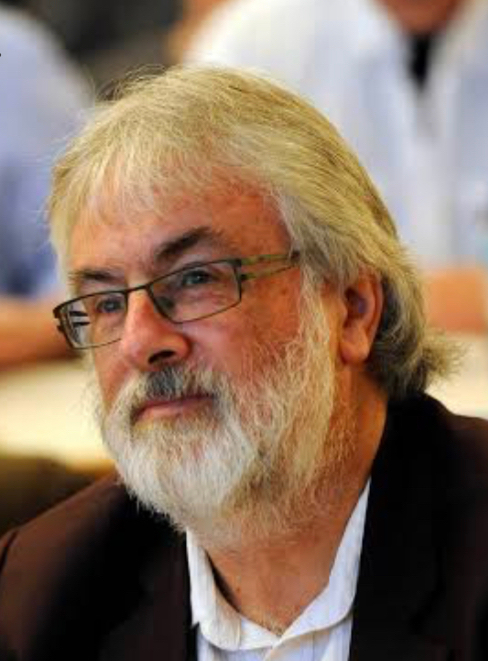I recall in the early years of my employment as Executive Director of the Association of Salaried Medical Specialists, a remarkably astute specialist (and also Chair of the NZ Medical Association at the time), Dr Alister Scott, telling me that specialists had three main fears – exams, competition and hospital car parks (my first ever interview on Radio New Zealand’s Morning Report was on the third of these fears and it was still a contentious issue when I finished up with ASMS around 30 years later).
My time with ASMS revealed a fourth fear – IT systems, especially those systems that don’t talk to other systems.
Digital technology is a constant point of discussion in the health system and it features in the Heather Simpson led review. But is technology an enabler or driver of health system change? The former Director-General of Health Chai Chuah was so excited about the opportunities technology offered that one felt he saw it as a driver.
Marketing ancient Mesopotamia
The UK based Babylon Health ‘GP at Hand’ initiative, promoted in the National Health Service as making healthcare easier. Naming the provider of new technology after the most famous city of ancient Mesopotamia proved to be clever marketing. But the experience has been that Babylon is a driver rather an enabler with a costly and disruptive effect on the NHS.
By 2019, six years after its formation, Babylon was worth more that £1.6 billion. This followed large funding injections from new investors that year including the Saudi Arabian government, US health insurer Centene Corporation and the German insurance company Munich Re. Babylon’s founder is Ali Parsa, a former banker at Goldman Sachs, who previously led the private company Circle Health that ran an NHS hospital before it fell into financial difficulty.
Babylon’s growth was controversially assisted by political support from the Secretary of State for Health Matt Hancock. Also controversial is that as a private company its services are not sufficiently open to the same legislative scrutiny and disclosure requirements as NHS organisations.
GP at Hand is a ‘digital-first’ model that extends the geographic spread of registered patients by offering the option of a remote consultation with a GP. Patients using it generally have fewer health problems than conventional users of GP services and were younger.
As it expands many, including GPs, are expressing concern about the disruption and strains it is causing the NHS. The British Medical Journal is among those reporting serious criticisms, including by doctors concerning the clinical advice given in response to symptoms.
Babylon began with a GP clinic in Fulham, London in 2016 providing GP at Hand. Since then, more than 40,000 people across London joined the Babylon-owned NHS practice with the vast majority leaving their existing GP, creating one of the largest and fastest-growing surgeries in the UK and leaving the NHS struggling to cope with the consequences.
‘Cherry-picking’
The rapid growth of GP at Hand to become one of the England’s biggest GP practices is due to the ability to take advantage of 2015 structural changes to the NHS that allow people to register at a GP practice outside the area where they live. Babylon has been able to rapidly register thousands of people who have left other practices. All it takes is a videoconference and app. Easy, low maintenance patients cost less than those who require more treatment. GP practices losing patients to Babylon are in turn left dealing with more complex cases; ‘cherry-picking’ by another name.
The sheer size of the GP at Hand clinic in Fulham means that the local NHS authority, the Hammersmith & Fulham Clinical Commissioning Group (CCG), has to pay for the care of many of new patients, the majority based in other parts of London. Babylon’s London presence has forced the NHS to reallocate millions of pounds in funding to mitigate for the disruption it has caused.
Central to Babylon’s rapid expansion has been its aggressive marketing tactics. It is noteworthy that the UK Advertising Standards Authority in October 2018 upheld three major complaints about its misleading advertisements including failing to make it clear that in order to use GP at Hand services patients had to leave their current GP.
Last year some interest was expressed in New Zealand over Babylon’s initiative. The introduction of technology along the lines of GP at Hand in New Zealand would undermine a key strength of DHBs – their statutory responsibility for a geographically defined population – and disrupt GP practices because of the need for our health system to adapt to it rather than the other way around.
The key questions when assessing new technology in health are is it an enabler, how does it fit into our health system if it’s imported from overseas, and the money trail.
Note: A longer earlier version of this article was published in New Zealand Doctor (23 April 2020 – https://www.nzdoctor.co.nz/article/opinion/no-hero-hand-conquer-babylon-it-conquers-uk-general-practice (paywall).



 Massey University: Birdnapped Cockatoo Wins Quote Of The Year
Massey University: Birdnapped Cockatoo Wins Quote Of The Year LAWA: “Know Before You Go” – Check Summer Swimming Water Quality Online
LAWA: “Know Before You Go” – Check Summer Swimming Water Quality Online Official Aotearoa Music Charts: 2024 End Of Year Charts Have Been Published
Official Aotearoa Music Charts: 2024 End Of Year Charts Have Been Published Nielsen Book NZ: Nielsen BookData Announces 'In Too Deep' Is The Official New Zealand Number 1 Christmas Bestseller
Nielsen Book NZ: Nielsen BookData Announces 'In Too Deep' Is The Official New Zealand Number 1 Christmas Bestseller PHARMAC: Pharmac Consulting On Six Medicines For New Zealanders
PHARMAC: Pharmac Consulting On Six Medicines For New Zealanders Athletics New Zealand: Funding Boost Propels Athletics NZ Toward LA 2028 Success
Athletics New Zealand: Funding Boost Propels Athletics NZ Toward LA 2028 Success